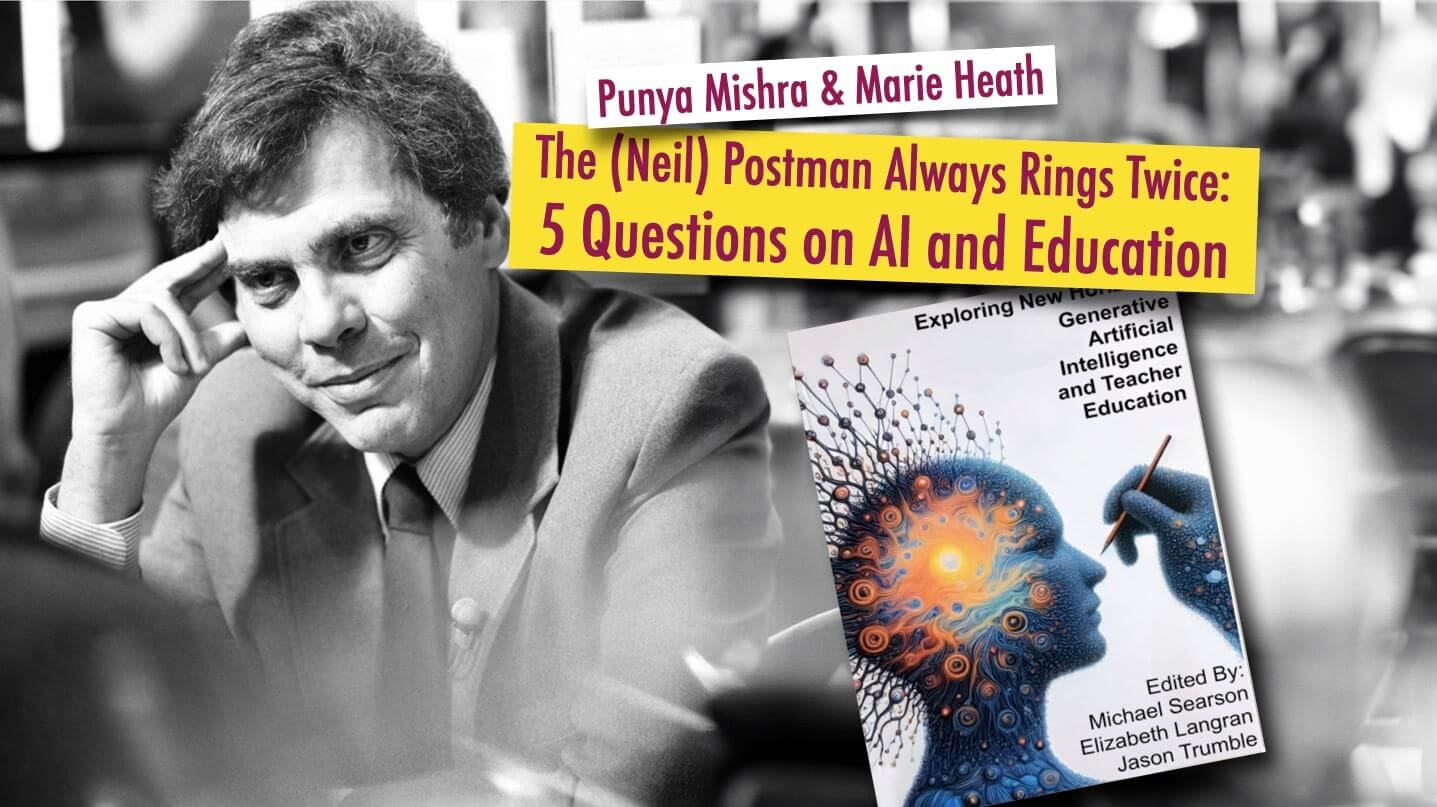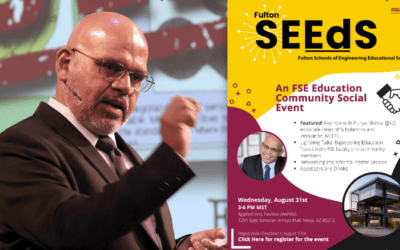Note: This post has also been cross-posted on the Civics of Technology blog.
Marie Heath (with whom I recently co-wrote a blog post about GenAI in Teacher Education: A techno-skeptical perspective) and I were invited to write a chapter for an edited volume titled Exploring new horizons: Generative artificial intelligence and teacher education (edited by Mike Searson, Liz Langran and Jason Trumble). The idea for the book emerged from a panel discussion at last year’s SITE conference.
In this chapter Marie and I explore the implications of generative AI (GenAI) in education, moving beyond narrow discussions of plagiarism and teacher efficiency to examine its broader societal impacts. We draw upon the insights of media theorist Neil Postman, form a talk he gave back in 1998, to examine the profound societal implications of GenAI technologies. Postman’s prescient ideas about technological change provide a conceptual framework for us to analyze how GenAI, like previous transformative innovations, will inevitably reshape culture, knowledge systems, institutional norms, and human cognition itself. We explore Postman’s five key points on the “prices” of technology, the existence of winners and losers, the biases embedded in media, the ecological nature of technological shifts, and the human-made artifice of technologies. Applying these perspectives to the emerging GenAI landscape, Marie and I unpack critical questions about truth, authenticity, power disparities, algorithmic injustice, and what it means to be human in an AI-permeated world. Our chapter calls on educators to cultivate critical awareness and agency among learners navigating technological change.
Citation and link given below
Mishra, P, & Heath, M. K. (2024). The (Neil) Postman Always Rings Twice: 5 Questions on AI and Education. In M. Searson, E. Langran, & J. Trumble (Eds.), Exploring new horizons: Generative artificial intelligence and teacher education (pp. 14-24). Association for the Advancement of Computing in Education (AACE).
Incidentally, the 1998 lecture by Postman that serves as the foundation of this article (Five things we need to know about technological change) has featured on this website before: part 3 of my Unpacking McLuhan series, this blog post; on the Fishing for Problems podcast; and in this interview with Faculti.net. You can actually hear Postman deliver this lecture in this youtube video.




0 Comments